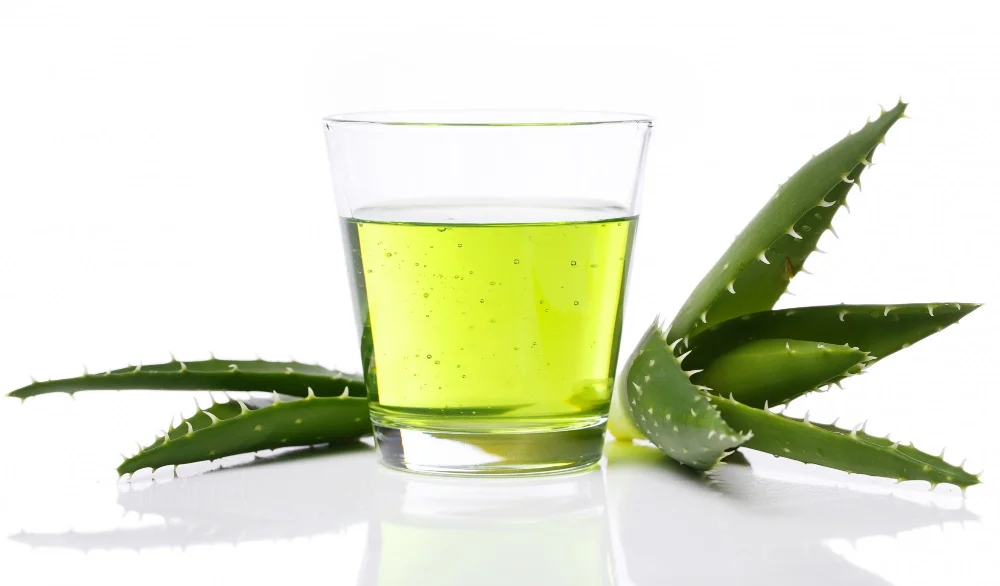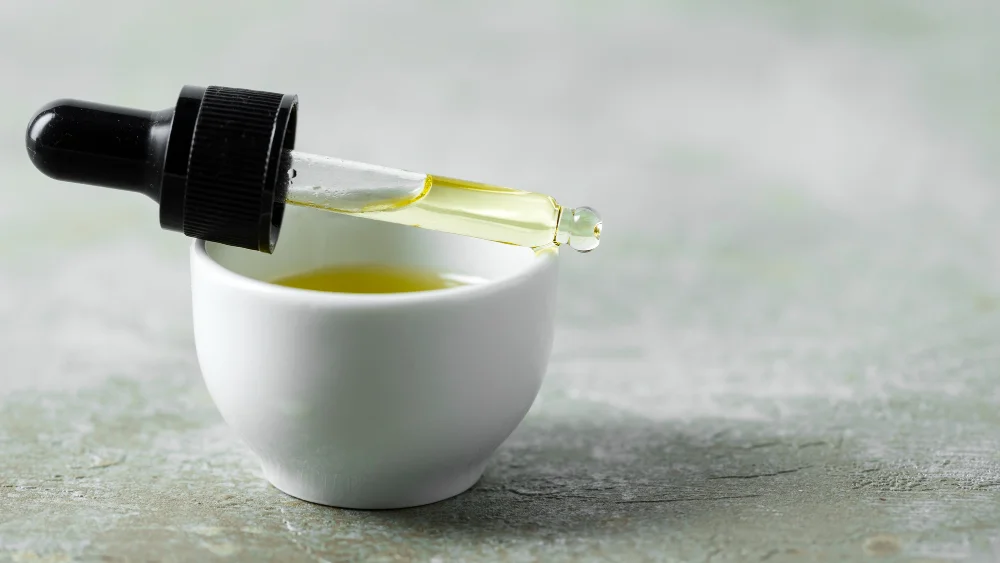Are you suffering from a bitter taste in mouth that just won’t go away? This unpleasant taste can make food and drinks less enjoyable and may leave you feeling uncomfortable. It can happen for many reasons — such as certain medicines, poor oral hygiene, dental issues, or acid reflux.
The good news is that a bitter taste in mouth is usually not serious and can be treated easily at home. In this article, you’ll discover 12 quick and simple remedies to get rid of bitter taste in mouth and refresh your mouth naturally, so you can enjoy a clean, fresh taste again.
Common Causes of Bitter Taste in Mouth
Some of the most common causes include:
- Poor oral Hygiene: A buildup of bacteria in the mouth can lead to a bitter taste.
- Dehydration: Not drinking enough water can cause dryness in the mouth, leading to a bitter taste.
- Consuming certain foods and drinks: Foods and drinks such as coffee, alcohol, chocolate, and citrus fruits can cause a bitter taste in the mouth.
- Acid reflux: Acid from the stomach can back up into the esophagus, causing a bitter or sour taste.
- Pregnancy: A bitter taste in the mouth is a common symptom experienced by many pregnant women, especially during the first trimester. The hormonal changes that occur during pregnancy can affect the sense of taste and cause a metallic or bitter taste in the mouth.
- Medications (Antibiotics): Certain medications can cause a bitter taste in the mouth as a side effect.
- Infections: Bitter taste can be a symptom of infections such as sinusitis, cold, flu, and strep throat.
- Liver or kidney disease: A bitter taste can be a symptom of liver or kidney problems.
- Dry mouth: A lack of saliva can cause a bitter taste.
- Dental issues: Tooth decay, gum disease, or oral infections can cause a bad taste.
- Smoking: Smoking can cause a bitter taste in the mouth.
Signs and Symptoms to Watch For
Here are some common signs and symptoms associated with a bitter taste in the mouth:
- Persistent unpleasant taste: You may notice a constant bitter or metallic taste in your mouth that persists even after eating or brushing your teeth.
- Dry mouth: You may experience a lack of saliva in your mouth, which can lead to a bitter taste and difficulty swallowing.
- Bad breath: A bitter taste in your mouth can be accompanied by bad breath, which can be caused by the buildup of bacteria in your mouth.
- Nausea or vomiting: If the bitter taste is caused by a digestive issue, you may experience nausea or vomiting.
- Changes in taste: The bitter taste may be salty, metallic and rancid.
12 Surprising Remedies for Instant Relief from Bitter Taste in Mouth
Here are 12 natural home remedies that may help alleviate the bitter taste:
Apple Cider Vinegar (ACV)
Apple cider vinegar (ACV) is a popular home remedy for various health issues, including a bitter taste in the mouth. Some people have reported fast relief from their symptoms after using it (5). However, there is no scientific evidence to support this claim, and using ACV for this purpose may not be safe for everyone.
How to use-
Here are some steps to use ACV for reducing a bitter taste in the mouth:
- Mix 1 tablespoon of apple cider vinegar with 1 cup of water.
- Swish the mixture in your mouth for 30 seconds.
- Spit out the mixture.
- Rinse your mouth with plain water.
Side effect
You can repeat this process up to three times per day, or as needed. It’s important to note that apple cider vinegar is acidic and can potentially damage tooth enamel if used too frequently or in high concentrations. So, be sure to rinse your mouth with plain water after using this remedy.
Drink lemon water to get rid of a sour taste in your mouth

Add a slice of lemon to a glass of water and drink it to help stimulate saliva production and reduce the bitter taste.
How to use-
Here is a simple home remedy you can try:
- Cut a lemon in half and squeeze the juice into a glass of water.
- Mix it well.
- Take small sips of the lemon water and swish it around your mouth for a few seconds before swallowing.
- Repeat as needed throughout the day.
Side effect
Lemon water is acidic, so it’s important to use it in moderation and not overdo it. Drinking too much lemon water can actually worsen the bitter taste and lead to other issues such as tooth sensitivity or enamel erosion.
Use baking soda
Mix a teaspoon of baking soda in a glass of water and swish it around your mouth to help neutralize the bitter taste. (7)
How to use-
Here is a simple home remedy you can try:
- Mix 1/2 teaspoon of baking soda with a small amount of water to form a paste.
- Dip your toothbrush into the paste and brush your teeth and tongue gently for 2-3 minutes.
- Spit out the paste and rinse your mouth thoroughly with water.
Drink warm salt water to neutralize the bitter taste in mouth

Warm salt water is commonly used as a home remedy to alleviate a bitter taste in the mouth. The salt in the water can help to neutralize the bitter taste and reduce inflammation in the mouth. (8)
How to use-
Here are the steps to use saltwater for this purpose:
- Mix 1/2 teaspoon of salt with 8 ounces of warm water.
- Stir the mixture until the salt is completely dissolved.
- Take a mouthful of the saltwater and swish it around your mouth for 30 seconds to 1 minute.
- Spit out the saltwater and repeat as needed throughout the day.
Try ginger to quick relief from bitter taste in mouth
Ginger is a natural home remedy that has been used for centuries to treat various health conditions, including bitter taste in the mouth. It can help to reduce inflammation in the mouth and soothe an upset stomach, which can sometimes be the cause of a bitter taste in the mouth. (9)
How to use-
Here are some ways to use ginger for this purpose:
- Chew on a small piece of fresh ginger root. This can help stimulate saliva production and reduce the bitter taste in the mouth.
- Make ginger tea by boiling fresh ginger root in water for 10-15 minutes, then strain and drink the tea. You can also add honey or lemon to the tea for added flavor.
- Add fresh or ground ginger to your food or drink. Ginger can add flavor to a variety of dishes and beverages, and its anti-inflammatory properties may help reduce the bitter taste.
Add probiotics in your diet
Probiotic can help restore the balance of bacteria in your mouth and reduce the bitter taste. (10)
Consuming probiotics as part of your diet may help alleviate bad taste in the mouth by promoting good oral health and reducing the growth of harmful bacteria that can contribute to bad breath and bitter taste.
Probiotics can be found in certain foods, such as yogurt, kefir, sauerkraut, and kimchi, or can be taken as supplements.
When choosing a probiotic supplement, it’s important to look for a high-quality product that contains a variety of strains of beneficial bacteria.
Drink Green Tea

Green tea contains antioxidants that can help reduce inflammation and improve the taste in your mouth. (11)
How to use-
Here are some steps to use green tea for reducing a bitter taste in the mouth:
- Brew a cup of green tea using a high-quality green tea bag or loose leaf green tea.
- Let the tea steep for 3-5 minutes.
- Sip the green tea slowly, allowing it to coat your tongue and mouth.
- Swish the tea around your mouth before swallowing to help freshen the breath and reduce any bitter taste.
Fennel seeds to eliminate bitter taste in mouth
Fennel seeds are a popular home remedy for treating bitter taste in the mouth. If you have a bitter taste in your mouth, you can use fennel seeds to help alleviate it.
How to use-
Here are some ways to use fennel seeds:
- Chew fennel seeds: Take a teaspoon of fennel seeds and chew them after your meals or whenever you feel the bitterness in your mouth. This will help freshen your breath and neutralize the bitter taste.
- Fennel tea: You can make fennel tea by boiling a teaspoon of fennel seeds in a cup of water for 5-10 minutes. Strain the tea and drink it when it’s still warm. This will not only help with the bitter taste in your mouth, but it can also aid in digestion.
Cinnamon
Cinnamon is a spice that is known for its sweet and warming flavor, and it can also be used to help remove a bitter taste from the mouth.
How to use-
Here are some ways you can use cinnamon to help alleviate a bitter taste:
- Cinnamon Tea: Brew a cup of cinnamon tea by adding a cinnamon stick to boiling water and steeping for 5-10 minutes. Sip on the tea slowly to help neutralize the bitter taste.
- Cinnamon Gum or Mints: Chewing cinnamon-flavored gum or sucking on cinnamon mints can help refresh your breath and reduce bitterness.
- Cinnamon Powder: Mix a pinch of cinnamon powder with warm water and gargle it in your mouth for a few seconds. Spit it out and rinse with water. This can help remove the bitter taste from your mouth.
- Cinnamon Mouthwash: Mix a teaspoon of cinnamon powder with warm water and use it as a mouthwash to rinse your mouth. This can help reduce the bitterness and leave a refreshing taste.
Use Aloe Vera

Aloe Vera juice is known for its soothing and healing properties, and it can also help to remove a bitter taste from the mouth.
How to use-
Here are some ways you can use Aloe Vera juice to alleviate a bitter taste:
- Aloe Vera Juice Drink: Drink 1-2 tablespoons of Aloe Vera juice before or after meals to help neutralize the bitter taste in your mouth. You can mix the juice with water or other fruit juices to make it more palatable.
- Aloe Vera Mouthwash: Mix 1/4 cup of Aloe Vera juice with 1/4 cup of water and use it as a mouthwash to rinse your mouth. This can help reduce the bitterness and leave a refreshing taste.
Try oil pulling for bad taste in mouth
Oil pulling is an ancient Ayurvedic practice that involves swishing oil (usually coconut oil or sesame oil) in the mouth for 10-20 minutes to improve oral hygiene. It helps to remove bitter taste in the mouth by reducing the bacterial load in the mouth.
How to use-
Here are the steps to perform oil pulling:
- Take 1 tablespoon of coconut oil or sesame oil in your mouth.
- Swish the oil around your mouth, pulling it through your teeth and along your gums.
- Continue swishing for 10-20 minutes, or until the oil becomes thin and milky in color.
- Spit out the oil.
Tea tree oil to eliminate bad taste in the mouth

Research suggests that tea tree oil may fight germs that cause tooth decay and bad breath.
Tea tree oil can be used in a diluted form as a mouthwash to help improve oral hygiene and alleviate bad breath, which may contribute to a bitter taste in the mouth.
How to use-
Here are the steps to prepare a tea tree oil mouthwash:
- Mix 1-2 drops of tea tree oil with 1 cup of warm water.
- Swish the solution in your mouth for 30-60 seconds, then spit it out.
- Rinse your mouth with warm water.
- Repeat once a day or as needed.
Side effect
It’s important to use tea tree oil in small quantities and always dilute it properly before using it in the mouth. If you experience any adverse reactions, stop using the tea tree oil mouthwash and consult a healthcare professional.
What Not to Eat to Get Rid of Bitter Teast in the Mouth
Certain foods and drinks can contribute to a bitter taste in the mouth. Here are some foods and drinks to avoid or consume in moderation to help alleviate a bitter taste in the mouth:
- Caffeine: Caffeinated beverages like coffee, tea, and soda can dry out the mouth and contribute to a bitter taste.
- Alcohol: Alcohol can also dry out the mouth and contribute to a bitter taste. It can also irritate the lining of the mouth and throat.
- Sugary and acidic foods: Sugary and acidic foods like candy, soda, and citrus fruits can increase the bacterial load in the mouth and contribute to bad taste.
- Spicy foods: Spicy foods can irritate the mouth and contribute to a bitter or unpleasant taste.
- High-fat foods: High-fat foods like fried foods, processed meats, and dairy products can contribute to a sour or metallic taste in the mouth.
- Tobacco: Tobacco use can dry out the mouth and contribute to bad taste.
- Strongly flavored foods: Strongly flavored foods like garlic, onions, and strong cheeses can leave an unpleasant aftertaste in the mouth.
Key Lifestyle Changes and Foods to Avoid
There are several things you can do to remove a bitter taste from your mouth. Here are some tips:
- Prioritize Hydration: Drinking water can help flush out any toxins or irritants that may be causing the bitter taste. Dehydration can cause a bitter taste in the mouth, so make sure you are drinking enough water throughout the day.
- Practice good oral hygiene: Brushing and flossing your teeth can help remove any debris or plaque buildup that may be causing the bitter taste.
- Use mouthwash: Using a mouthwash can help kill any bacteria in your mouth that may be contributing to the bitter taste.
- Chew Sugar-Free Gum: Chewing sugar-free gum can help stimulate saliva production, which can help wash away the bitter taste.
- Eat something acidic: Eating something acidic, such as a lemon or a piece of pineapple, can help neutralize the bitter taste.
- Drink tea: Drinking tea, especially green tea, can help stimulate the taste buds and reduce the bitter taste.
- Avoid certain foods: Certain foods, such as coffee, alcohol, and spicy or fatty foods, can contribute to a bitter taste in the mouth. Avoiding these foods may help reduce the bitter taste.
- Use a tongue scraper: Bacteria and food particles can accumulate on the surface of the tongue, leading to a bad taste. Use a tongue scraper to gently remove the buildup and improve taste.
- Eating foods high in zinc or vitamin B12: Zinc and vitamin B12 are important for maintaining a healthy mouth and can help improve taste. Foods such as seafood, meat, and dairy products are high in these nutrients.
- Add Vitamin C in your diet: such as oranges or strawberries, which can help reduce bitterness in the mouth.
When to See a Doctor
In most cases, a bitter taste in mouth is not serious and will go away with these home remedies.
However, you should consult a doctor or dentist if:
- The bitter taste lasts for more than a few days and home remedies aren’t helping.
- It is accompanied by other serious symptoms like nausea, vomiting, abdominal pain (acid reflux), fever, or jaundice (liver/kidney issues).
Your doctor or dentist can determine the underlying cause, check for dental issues like gum disease, and recommend the appropriate treatment.
Read more- How to Stop Cough at Night: 12 Best Home Remedies for a Restful Sleep
Read more- CBD Oil: A Comprehensive Guide of Its Benefits, Risks, and Uses
Conclusion
A bitter taste in mouth can be caused by various reasons, but most cases can be managed at home. Natural remedies like lemon juice, ginger, apple cider vinegar, baking soda, aloe vera, and mint, combined with good oral hygiene and hydration, can help eliminate the bitter taste in mouth and refresh your taste buds.
If the bitter taste persists or comes with other symptoms, consult a healthcare professional for proper diagnosis and treatment.
Frequently asked questions (FAQs)
What deficiency causes bitter taste?
Zinc or vitamin B12 deficiencies can affect taste perception, sometimes leading to a bitter or metallic taste.
How can I prevent a bitter taste in my mouth?
Maintain oral hygiene, stay hydrated, avoid smoking, and eat a balanced diet rich in zinc and vitamin B12.
Can medications affect taste in the mouth?
Yes, some medications can cause a bitter or metallic taste. Consult your doctor for alternatives if needed.
Is a bitter taste in mouth a sign of pregnancy?
It can be a symptom due to hormonal changes, especially during the first trimester.
References
📚 Show References
- Acid reflux (GER & GERD) in adults. National Institute of Diabetes and Digestive and Kidney Diseases. Acid Reflux – NIDDK
- Bookout, G. P., et al. (2023). Burning mouth syndrome. Burning Mouth Syndrome – NCBI
- Burning mouth syndrome (BMS). The Menopause Charity. Burning Mouth Syndrome – The Menopause Charity
- Candida infections of the mouth, throat, and esophagus. Centers for Disease Control and Prevention. Candida Infections – CDC
- Dry mouth. National Institute of Dental and Craniofacial Research. Dry Mouth – NIDCR
- Jacob, L. E., et al. (2022). Xerostomia – A comprehensive review with a focus on mid-life health. Xerostomia Review – NCBI
- Managing anxiety. NHS. Managing Anxiety – NHS
- Managing taste changes during chemotherapy. Memorial Sloan Kettering Cancer Center. Taste Changes During Chemotherapy – MSKCC
- Metallic taste. NHS. Metallic Taste – NHS
- Oral health conditions. Centers for Disease Control and Prevention. Oral Health Conditions – CDC
- Oral hygiene. National Institute of Dental and Craniofacial Research. Oral Hygiene – NIDCR
- Oral thrush (Mouth thrush). NHS. Oral Thrush – NHS
- Risso, D. S., et al. (2016). A potential trigger for pine mouth: A case of a homozygous PTC taster. Pine Mouth Case – NCBI
- Snyder, D. J., et al. (2017). Oral sensory nerve damage: Causes and consequences. Oral Sensory Nerve Damage – NCBI
- Talha, B., et al. (2023). Xerostomia. Xerostomia – NCBI
- What causes morning sickness (nausea and vomiting during pregnancy)? American College of Obstetricians and Gynecologists. Morning Sickness – ACOG

